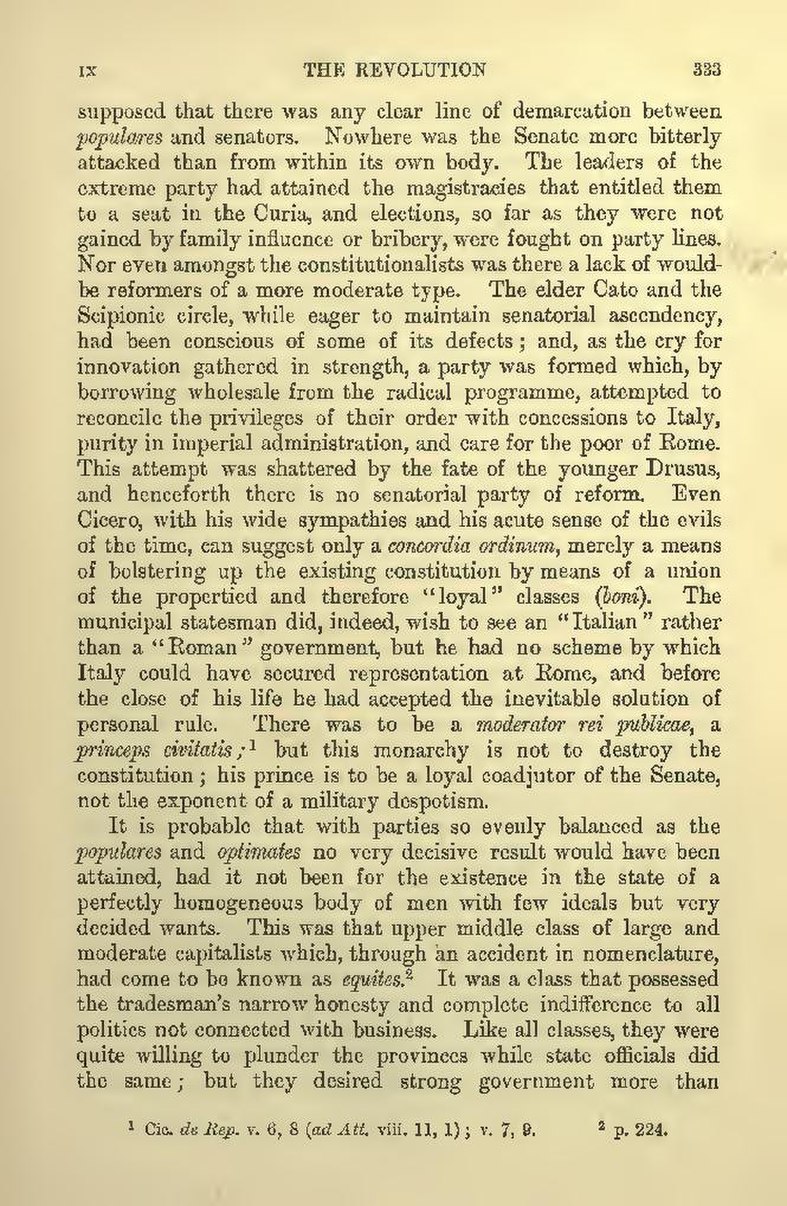supposed that there was any clear line of demarcation between populares and senators. Nowhere was the Senate more bitterly attacked than from within its own body. The leaders of the extreme party had attained the magistracies that entitled them to a seat in the Curia, and elections, so far as they were not gained by family influence or bribery, were fought on party lines. Nor even amongst the constitutionalists was there a lack of would-be reformers of a more moderate type. The elder Cato and the Scipionic circle, while eager to maintain senatorial ascendency, had been conscious of some of its defects; and, as the cry for innovation gathered in strength, a party was formed which, by borrowing wholesale from the radical programme, attempted to reconcile the privileges of their order with concessions to Italy, purity in imperial administration, and care for the poor of Rome. This attempt was shattered by the fate of the younger Drusus, and henceforth there is no senatorial party of reform. Even Cicero, with his wide sympathies and his acute sense of the evils of the time, can suggest only a concordia ordinum, merely a means of bolstering up the existing constitution by means of a union of the propertied and therefore "loyal" classes (boni). The municipal statesman did, indeed, wish to see an "Italian" rather than a "Roman" government, but he had no scheme by which Italy could have secured representation at Rome, and before the close of his life he had accepted the inevitable solution of personal rule. There was to be a moderator rei publicae, a princeps civitatis;[1] but this monarchy is not to destroy the constitution; his prince is to be a loyal coadjutor of the Senate, not the exponent of a military despotism.
It is probable that with parties so evenly balanced as the populares and optimates no very decisive result would have been attained, had it not been for the existence in the state of a perfectly homogeneous body of men with few ideals but very decided wants. This was that upper middle class of large and moderate capitalists which, through an accident in nomenclature, had come to be known as equites.[2] It was a class that possessed the tradesman's narrow honesty and complete indifference to all politics not connected with business. Like all classes, they were quite willing to plunder the provinces while state officials did the same; but they desired strong government more than
